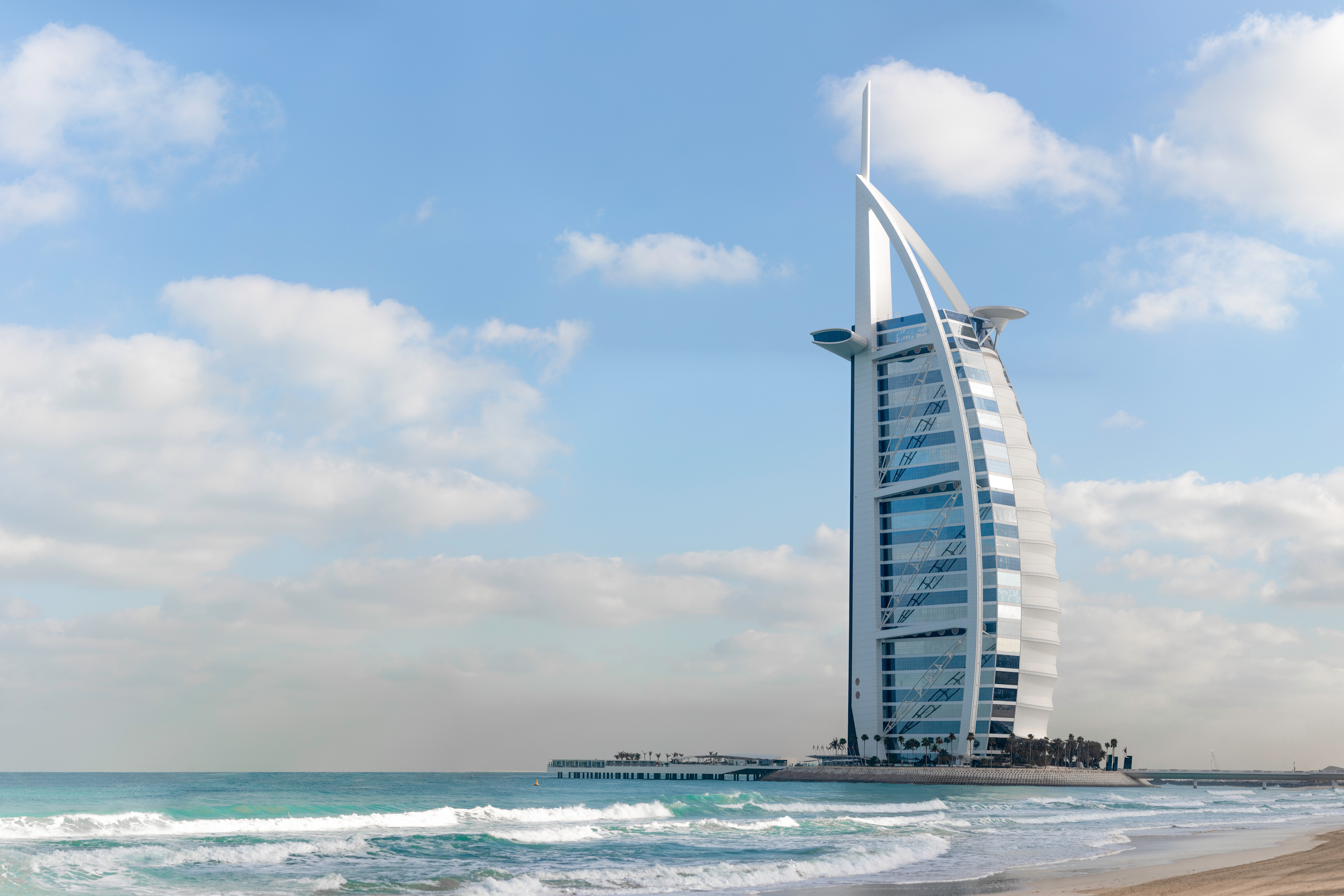Dubai (UAE)
Explore
Dubai is a destination that has a perfect mix of modern technology with culture and history, and if you are looking for adventure, entertainment & a world-class shopping experience all at one place!
Dubai has emerged as a global city and a business, financial and commercial hub of the Middle East. Once a small fishing village in the Arabian Gulf, The Emirate of Dubai now is the second largest of the seven United Arab Emirates but has the largest population of UAE.
Dubai is located on the Persian Gulf, to the northeast of the United Arab Emirates. Dubai is currently the second largest emirate but is poised to expand to twice its size with the addition of the man-made islands; the Waterfront, the three Palms, the World, the Universe, Dubailand, as well as many other construction projects underway in the desert.
The history and culture of Dubai is deeply rooted in Islamic traditions that shape a UAE national's lifestyle. Dubai is famously known as the entertainment capital of the Middle East, which attracts many party lovers from all over the world, especially those who are willing to splurge on most expensive places in the city.
Dubai at a Glance
Time: GMT + 4
Estimated Area: 4,114 km2
Population: 33.3 Lakhs
Religion: Islam (Sunni Muslims)
Major Industries: Petroleum Industry, Construction, Tourism
Currency: UAE Dirham(AED)
Electricity Voltage: 230V/50 Hz (type G Sockets)

Weather & Climate
Dubai’s weather is characterised by tropical desert climate with hot, sunny conditions due to its proximity to the Tropic of Cancer and the Northern desert belt. Summers are very hot, humid and dry with temperatures going upto to 40°C & higher and rarely dropping below 30°C. Winters are still warm, but considerably pleasant from summers with the temperature ranging from 23°C to 14°C.
Dubai gets hardly any rain, only some in winter months when the temperature is around 20 degrees. However, in the desert temperatures often drop below the freezing point.
Best time to visit
The best time to visit Dubai is during the winter months, from November to April when the city continues to offer bright skies and balmy temperatures. Generally there’s higher tourist traffic during January and February because of the Dubai Shopping Festival, which makes the city come alive.
Temperatures soar from May to August, so there aren’t many tourists during this time and hotel prices are cheaper.
What to pack?
When in Dubai, one should keep in the mind the local Islamic culture and the weather conditions whilst dressing. Although Dubai is quite liberal and women are not expected to ‘cover’, it is often a matter of respect and it is recommended that one dresses up modestly especially when going to public places, government buildings, and shopping malls.
Whilst there are some extreme temperature differences between the mild winters and the very hot summers in Dubai, clothing choices remain similar throughout the year. Using slightly thicker clothing materials or an extra layer of clothing might be just needed during the winter. In summer season, you can wear light coloured clothing which will be able to deflect the sun’s rays and keep you cooler. A pair of sunglass and umbrella will also help to keep the sun off your head. Also don’t forget to apply SPF sunscreen and carry a reusable bottle of water.
Visiting Sites of Cultural Importance
Dubai is highly developed, modern and by and large tolerant, but tourists should also respect that it is a Muslim city. Tourists must remain respectful of all local religious beliefs and practices while in Dubai. Those who are curious to learn more about the cultural practices, can visit one of the mosques that is open to non-Muslims. All men and women are encouraged to dress modestly when visiting mosques or you can borrow traditional clothing for free before entering.
Tourists who visit during the holy month of Ramadan should refrain from eating, drinking, smoking or engaging in any loud activity in public during daylight hours.
Visa/Entry Permit
Citizens of most of the countries do not require advance visa arrangements to enter the UAE and can obtain a visa upon arrival for 30 days with a 10-day grace period for extension. It is essential that your passport must be valid for minimum next six months if you want to avail Visa on Arrival.
All transit passengers stopping at the UAE airports for a minimum of 8 hours are eligible for a 96 hour Transit Visa. A valid onward ticket is required for the Transit Visa.
Visa / Entry Permit is subject to change and depends on the Government policy. Our team will provide you with the exact details on your query about this important & crucial aspect of your travel.
Do’s & Dont’s